Morocco ramps up use of Israeli drones in Western Sahara: Report
Morocco has purchased a large number of drones from the Israeli regime in recent years, enabling Rabat forces to carry out attacks deep in Sahrawi territory, where people now live under Israeli-sponsored surveillance and face harassment, a report says.
Sidi Owgal, a senior military official within the Polisario who currently serves as the head of presidential security, told The Intercept that Israeli drones being used in Western Sahara were doing both jobs of providing surveillance and also directly attacking targets.
Abwa Ali, a commander within the Polisario had personally seen missile fragments with Hebrew lettering on them.
Some of Morocco’s Israeli drone arsenal could indeed be used as attack drones: The Heron TP and the Hermes 900 can be used for both surveillance and attacks, while the Harop is only for strikes.
“The Harop are what we call ‘loitering munitions’; they are expensive and they can hit only once because they destroy at the impact,” said Borsari. “They would most likely be used against high-value targets.”
Senior officials in Sahrawi territory say that the proliferation of Israeli drones in Morocco makes an already unequal war between Morocco and the Polisario completely asymmetrical.
“Sahrawi people feel that every day, we become similar to Palestinians,” said Mohamed Sidati, the foreign affairs minister of the Sahrawi Arab Democratic Republic.
Owgal and Sidati have said that Israeli advisers are on the ground on the Moroccan side of the berm counseling the Royal Moroccan Armed Forces on their use of drone technology. “They are there … not far from the berm,” said Sidati.
Federico Borsari, a researcher specializing in unmanned technologies at the Center for European Policy believes “it is not only possible but very likely that Israel sent advisers on the ground in Morocco to train the Royal Armed Forces in the use of drones.”
Moroccan media has also stated that Rabat plans to manufacture “kamikaze” drones in partnership with Tel Aviv, and Israeli company Elbit Systems recently announced the opening of the two factories in Morocco to produce “defense systems.”
In December 2020, a month after the end of the ceasefire between Morocco and the Polisario, then-President Donald Trump declared US support for Morocco’s sovereignty over Western Sahara. The recognition contravened the United Nations’ position, which considers Western Sahara a “non-self-governing territory,” a euphemism for a colony.
In return for US support on Western Sahara, Morocco joined the so-called Abraham Accords, a series of deals brokered by Trump and his son-in-law, Jared Kushner, that resulted in some Arab states normalizing ties with Israel.
Since then, Rabat has gone from having covert ties with Tel Aviv to becoming its open ally, and Israel has sold at least 150 drones to Morocco.
Morocco annexed the vast Western Sahara region, a former Spanish colony, in the 1970s and has since been in conflict with the Algeria-backed Polisario Front — a movement that seeks to establish an independent state in the territory and end Morocco’s presence there.
Morocco is currently in control of 80 percent of the region, including its phosphate deposits and fishing waters. It has built an approximately 2,700 km (1,700-mile) -long wall running through the disputed territory to keep Sahrawis out of the resource-rich region.
Western Sahara’s indigenous population is firmly opposed to Moroccan control and has been calling for independence from the North African country and for a referendum on their self-determination, something that has been pledged to the region in UN resolutions.
The UN has deployed the peacekeeping mission MINURSO to the region to monitor a 1991 ceasefire and to supposedly organize a referendum on the region’s status.
However, the world body’s envoys have failed to set the stage for a referendum on Western Sahara’s future.
While Morocco’s purchase of Israeli drones has been reported since 2014, their use in Western Sahara is less well documented.
A local journalist shared photos that had circulated on social media and show an Israeli Heron drone at Dakhla airport, a city on the Moroccan-controlled side of Western Sahara; the photos were dated from late 2020 and early 2021. Details from the hangar in the photos match images of Dakhla airport.
Additionally, commercial satellite images show what strongly resembles a Heron drone outside the hangar in October 2021.
Israel first sold three Heron drones to Morocco in a one-time French-brokered deal six years before the official rapprochement between the two sides.
In November 2021, Algeria revealed that Morocco used “sophisticated weaponry” to strike three Algerian truckers as they were reportedly passing through Polisario-controlled Western Sahara.
In 2022, two Mauritanian citizens were reportedly killed by Moroccan drone strikes. Sidati also alleged that there were many civilian casualties. “The Moroccans have a scorched-earth policy,” he said.
The UN Mission for the Referendum in Western Sahara stated in their most recent report, in October 2022, that they were only able to independently confirm casualties in one drone strike and observed traces of human remains at four other sites.
They additionally documented 18 drone strikes and confirmed aerial strikes in eight instances. However.
The long-standing conflict between the two sides has received renewed attention due to growing frustration among the Sahrawi people, particularly after the United States disregarded the UN efforts by backing Morocco’s claim to sovereignty over the entire disputed territory in 2020.
Morocco became the fourth Arab country — after the United Arab Emirates (UAE), Bahrain, and Sudan — to reach a normalization agreement with Israel, which was brokered by the administration of ex-US President Donald Trump during its final days in office. As part of the contentious deal, Trump agreed to recognize Morocco’s authority in Western Sahara.
US President Joe Biden has not carried out actions to make the recognition of Morocco’s sovereignty announced by his predecessor effective on the ground.
‘French army fits in one football stadium’: Politician mocks troop deployment to Ukraine
At least 40 Palestinian journalists being held in Israeli prisons: Advocacy group
US delivers more F-35 jets to Israeli regime despite Gaza truce violations
Blair distances himself from Trump’s $1bn ‘Board of Peace’ fee
US Justice Department refuses probe into killing of Minneapolis mother
VIDEO | Israel Gaza ceasefire violations
VIDEO | Gaza Solidarity Forum in Damascus calls for boycott of Israel over Gaza genocide
VIDEO | London memorial event highlights Gaza genocide


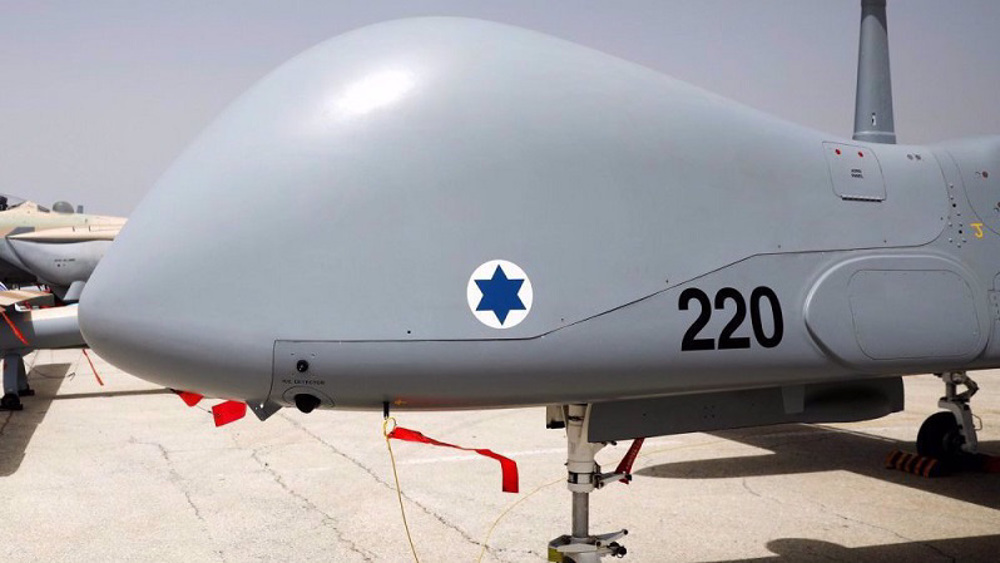
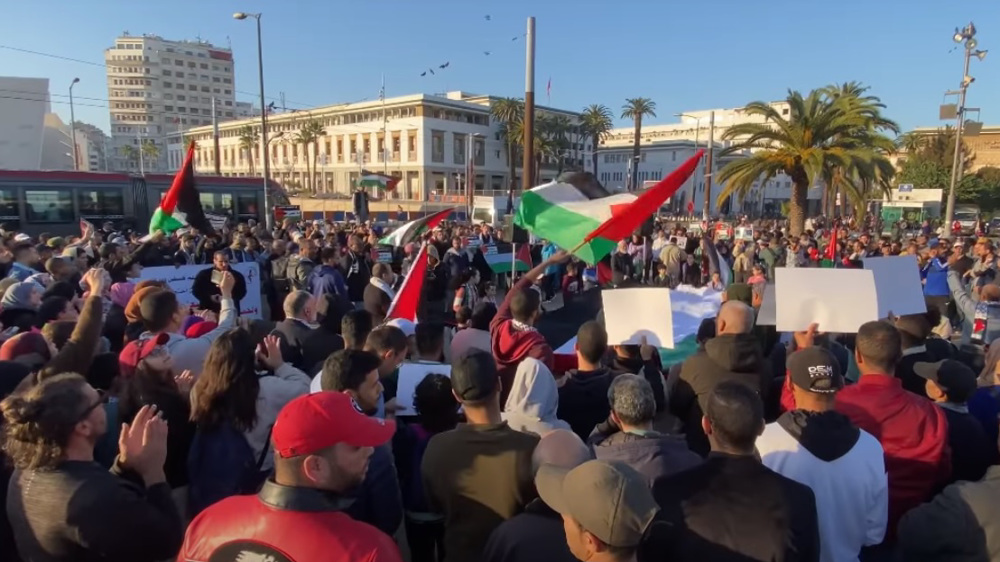
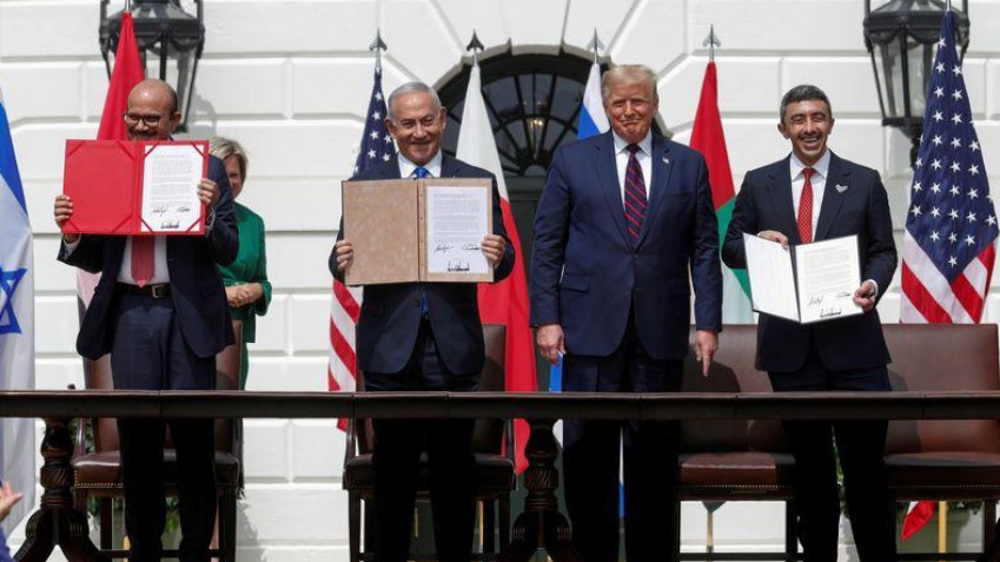

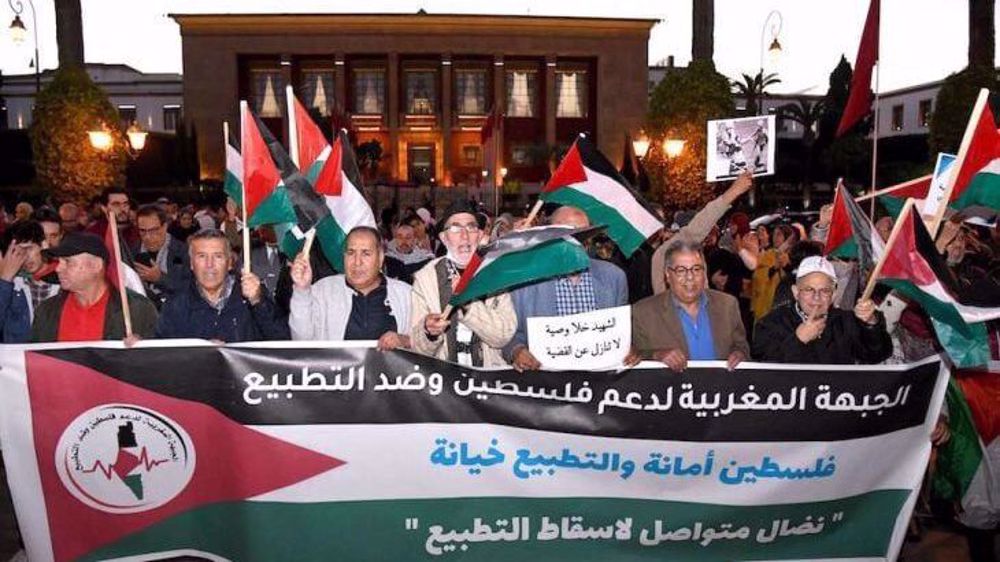
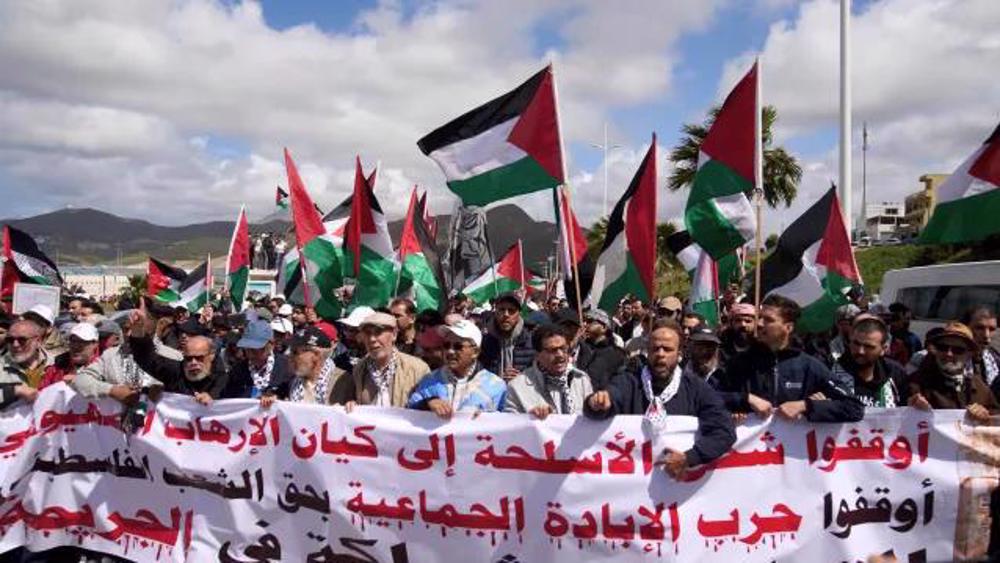
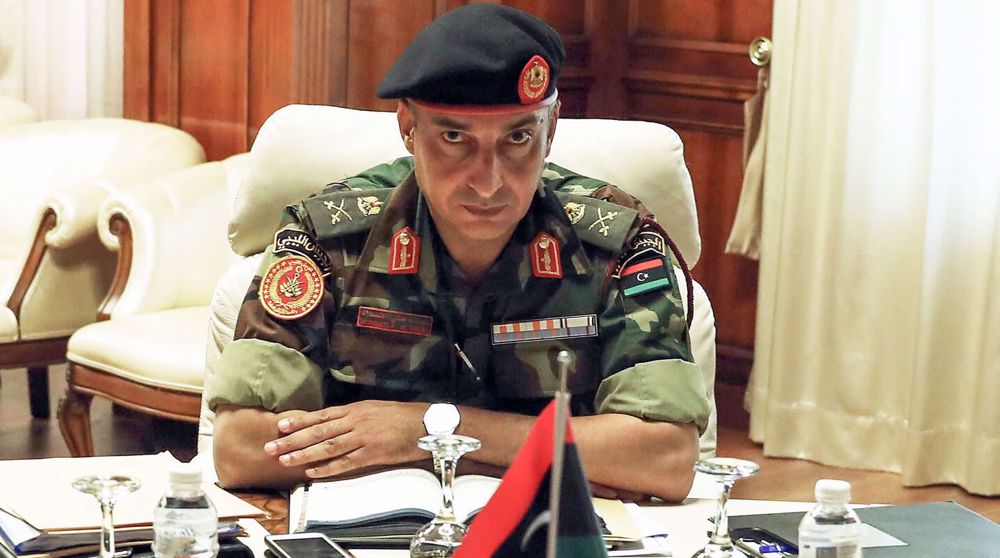




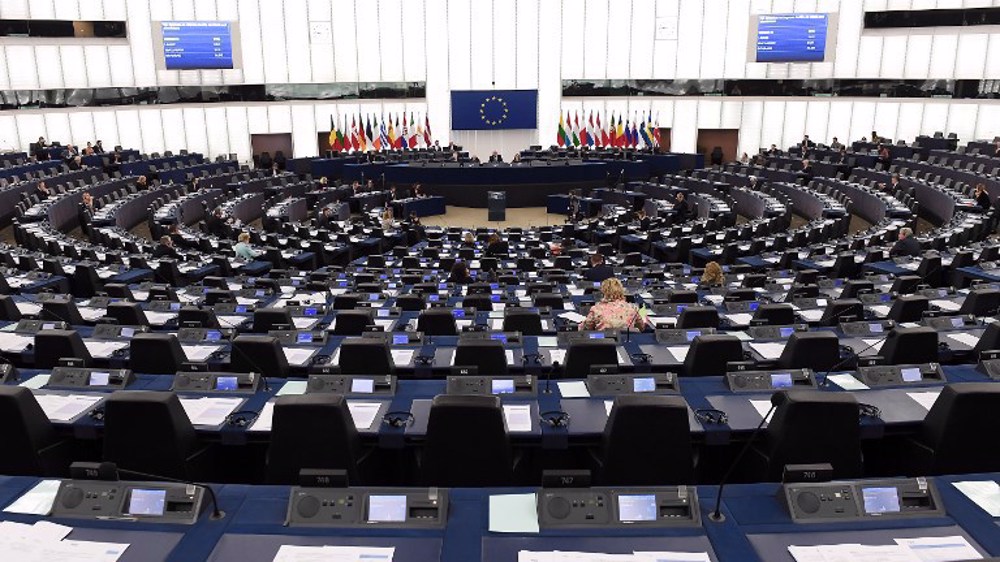
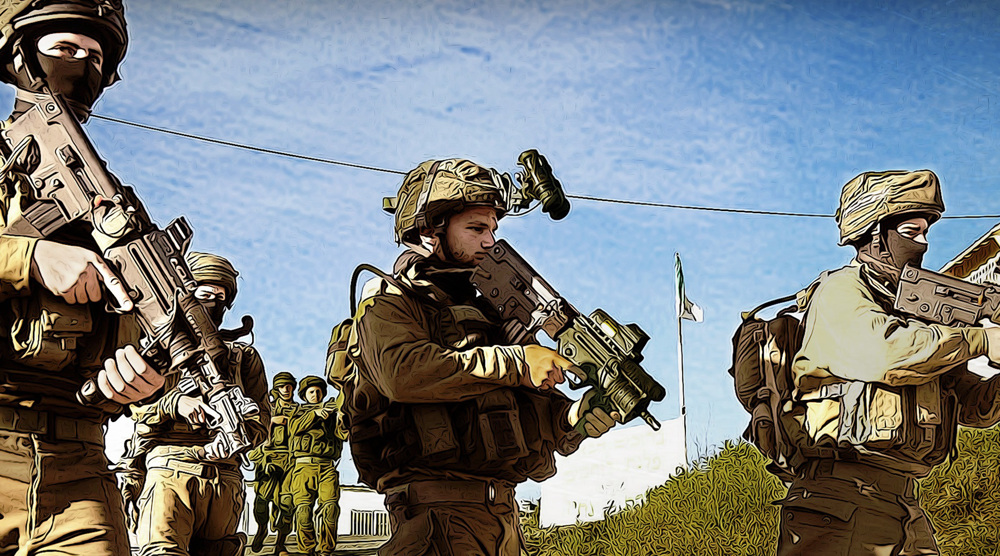
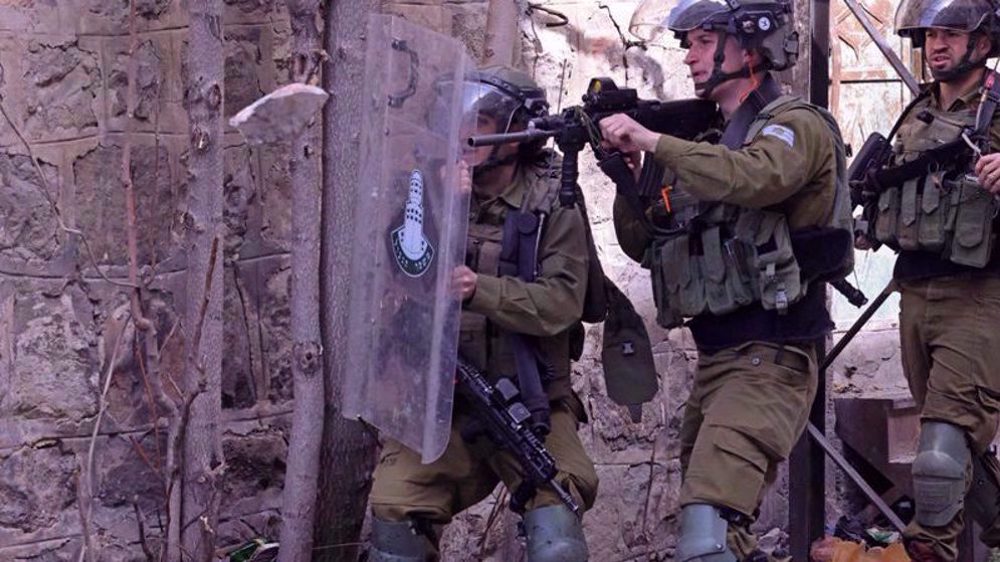
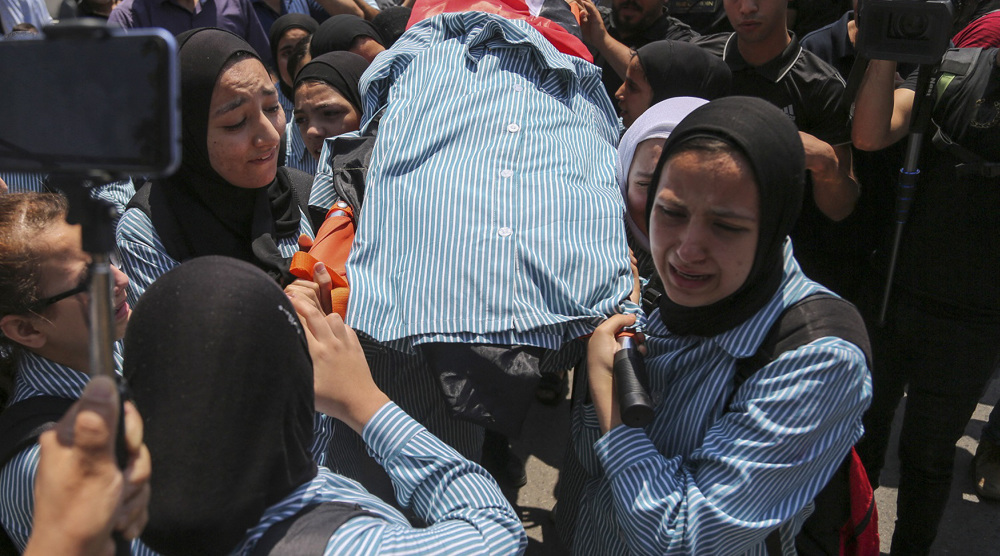
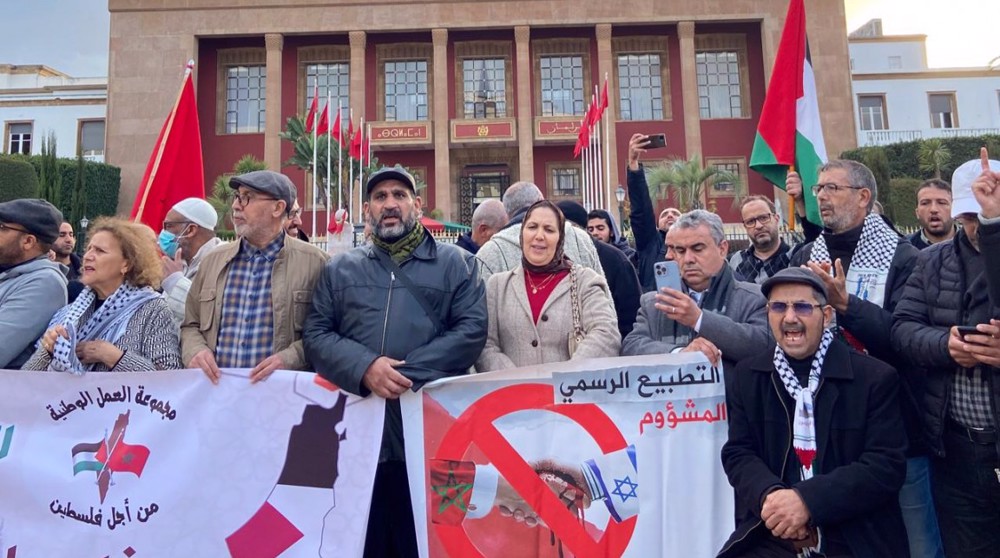
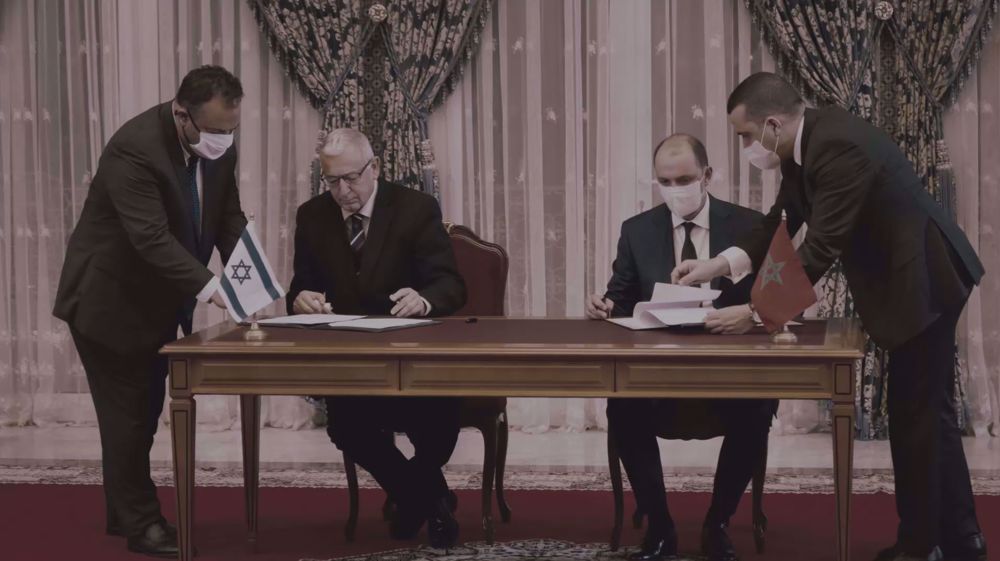
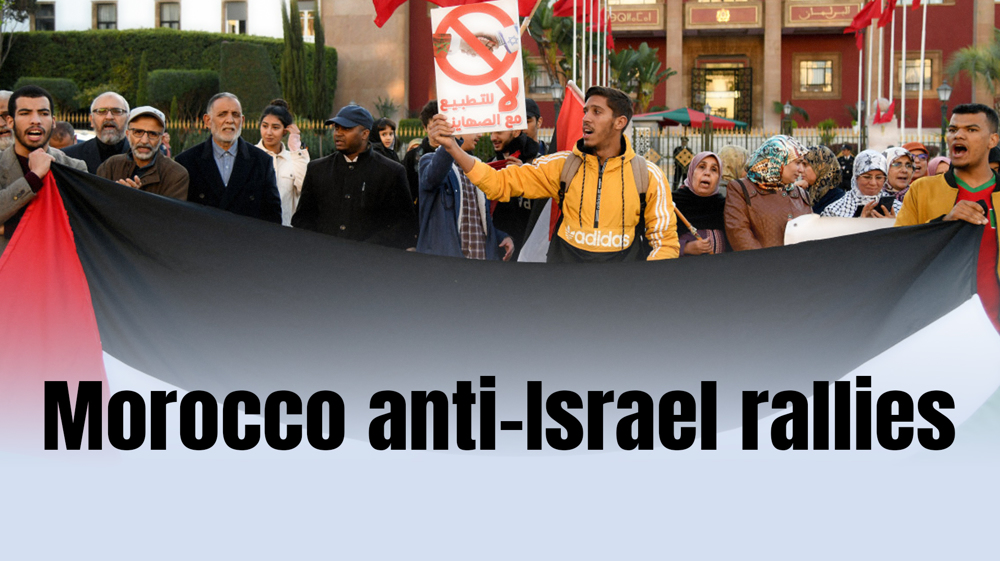

 This makes it easy to access the Press TV website
This makes it easy to access the Press TV website